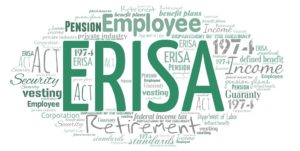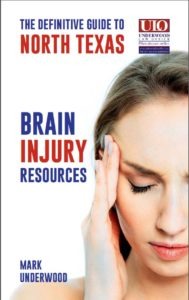
Congress ostensibly designed the Employee Retirement Income Security Act of 1974 (ERISA) to protect employment benefits from mismanagement or unfair practices by employers regarding employee benefits and pensions. Specifically, the law covers procedures related to claims and appeals for private employer-provided benefits and pensions. It was originally intended to require those in charge of employee benefit plans to act in the best interests of the plan participants.
ERISA is supposed to set minimum standards for retirement or pension plans, health plans, and other welfare benefit plans like life insurance, disability insurance, and apprenticeship plans. The law also requires accountability and transparency, requiring employers to make plan information available to plan participants. It applies to virtually all benefits that an employee may receive through their employer and employment. It does not apply to employees of government agencies and religious organizations. Employees of government agencies and religious organization are specifically exempted from ERISA.
In the eyes of the employee, the protection offered by this federal statute is minimal, at best. Unfortunately, the ERISA legislation enforcement slants heavily in favor of the employer and any associated insurance companies. As a result, ERISA may provide little protection for employees who make claims for individual benefits.
How Does ERISA Protect Employees?
ERISA does not actually require employers to provide benefits. Instead, under the ERISA statute, employers and insurance companies must provide plan participants with information regarding each plan’s setup and how the employer funds it. The information is typically called the Plan Document and/or Summary Plan Description. These documents are critical because they allow employees to make informed decisions regarding their benefits and whether they intend to remain with the employer providing those benefits. ERISA also requires the determination of claim decisions to be performed in accordance with the plan documents that govern the benefits.
Beyond plan information, ERISA mandates that employers provide participants with a grievance and appeals process, which is crucial when a plan wrongfully denies benefits to plan participants. Under ERISA, participants also have the right to sue for benefits or breaches of fiduciary duty and wrongful claim denials under Section 502(a)(1)(B).
For a free legal consultation, call (972) 535-6377
ERISA Enforcement
Because of the immense scope of ERISA legislation, three separate governmental bodies enforce ERISA: the Department of Labor’s Employee Benefits Security Administration, the Department of Treasury-Internal Revenue Service, and the Pension Benefit Guaranty Corporation.
The Department of Labor generally focuses on things that are prohibited by ERISA as well as the fiduciary duties owed by plan administrators. The IRS oversees compliance with the retirement plan provisions of the Internal Revenue Code, including qualification requirements for retirement plans. Finally, the Pension Benefit Guaranty Corporation focuses on ensuring that private-sector pension plans pay beneficiaries on time. In a perfect world, these three agencies would smoothly work together to protect the rights of plan participants, promptly responding to all complaints. In reality, it’s never that easy, and investigation and enforcement can take time on the federal level.
The Department of Labor is typically the most active of the three agencies when it comes to an individual’s claim for benefits. But, it almost never gets involved in a single individual’s claim for disability benefits or life insurance benefits.
Overcoming the Heightened Potential For Claim Rejection
ERISA may mandate detailed plan information and the provision of an appeals process. Still, these elements often do little good for employees desperate to avoid claim rejections in the first place. Unfortunately, employers and insurers currently have the power to reject claims for almost any reason imaginable so long as they do not abuse the discretion granted to them by the plan document. Moreover, navigating the byzantine organization of federal agencies that enforce ERISA can be challenging. While the cards may seem stacked against employees, experience ERISA legal representation can make a huge difference.
Contact an ERISA Lawyer Today
If you’re struggling to make sense of ERISA or are worried about the possibility of a disability insurance, life insurance or medical insurance claim denial, you’ll want an experienced ERISA attorney by your side. Lawyers that do not handle ERISA on a regular basis can cause more harm than good when they get involved in an individuals ERISA claim. Contact us today to learn more. Our McKinney Texas ERISA lawyers can be reached at 972.535.6377.
Call or text (972) 535-6377 or complete a Free Case Evaluation form





